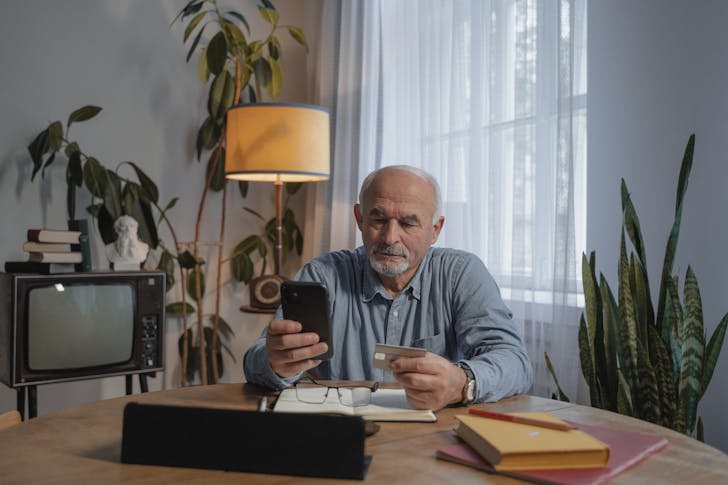Financial well-being starts with peace of mind. Not big paychecks. Not a million-dollar portfolio. According to a new study from Vanguard, the strongest sign that someone feels financially secure is having just $2,000 saved for emergencies.
That is right! The magic number is not seven figures. It is two grand, sitting in a savings account, ready to catch you when life throws a curveball. This amount does more to boost financial well-being than high income or large investment accounts.
Vanguard surveyed over 12,000 of its investors. These weren’t broke college kids—these were folks with money. Yet, what stood out wasn't their income or asset size but whether they had $2,000 stashed away for a rainy day.
Having that emergency buffer increased their financial well-being by 21%. Compare that to a 12% bump for people making $500k a year. Even having $1 million in assets only gave an 18% boost. The message is clear: a little savings goes a long way.

Olly / Pexels / According to the Consumer Financial Protection Bureau, financial well-being means being able to meet your obligations and feel safe about your future.
And that is where the $2,000 makes a difference. People who had it saved spent two fewer hours each week worrying about money. That is the time to focus on your family, your job, or just catching a break.
Think about that. Two fewer hours every single week, stressing about bills or accidents. That adds up to over 100 hours a year you get to spend breathing easier.
Income Isn’t the Fix You Think It Is
It is easy to assume a six-figure salary will solve your problems. But money in doesn’t always mean money saved. High earners often increase spending as income rises. That $500k paycheck doesn’t help much if your costs balloon with it.
The Vanguard study proves it. Even with half a million in income, people didn’t feel as stable unless they had emergency savings. Without a safety net, stress creeps in. One missed paycheck, and the house of cards starts wobbling.
So instead of chasing a bigger paycheck, it makes more sense to focus on building that $2K emergency fund. It is the foundation. Everything else comes after.
The best part is that saving $2,000 is not some distant goal. It is real, reachable, and doesn’t require a massive lifestyle change. Save $50 a week, and you will hit it in less than a year.
The Psychological Power of Being Prepared
Having $2,000 set aside is not just about paying bills. It is more about what it does to your brain. When people feel prepared, their stress drops. They sleep better. They make smarter money choices.

Tima / Pexels / While 80% of Vanguard investors had that $2,000 saved, almost 40% of Americans can’t come up with $400 for an emergency.
That sense of control leads to better decisions all around. You stop panic-spending. You don’t overuse credit cards. You start planning ahead instead of reacting in crisis mode.
The Harsh Reality for Many Americans
According to the study, 80% of Vanguard investors had that $2,000 saved. But almost 40% of Americans can’t even come up with $400 for an emergency. That is a huge gap! It shows how different the picture is depending on who you ask.
It highlights how important it is to get this message out. The $2,000 goal should be a public priority.
The system doesn’t make it easy, but the goal is still worth chasing. A little savings can pull people out of financial fear and give them room to breathe. And that kind of freedom is priceless.
If you haven’t hit that $2K mark yet, don’t get discouraged. The best time to start is right now. Open a savings account if you don’t have one. Set your weekly transfer and hit the milestone.



